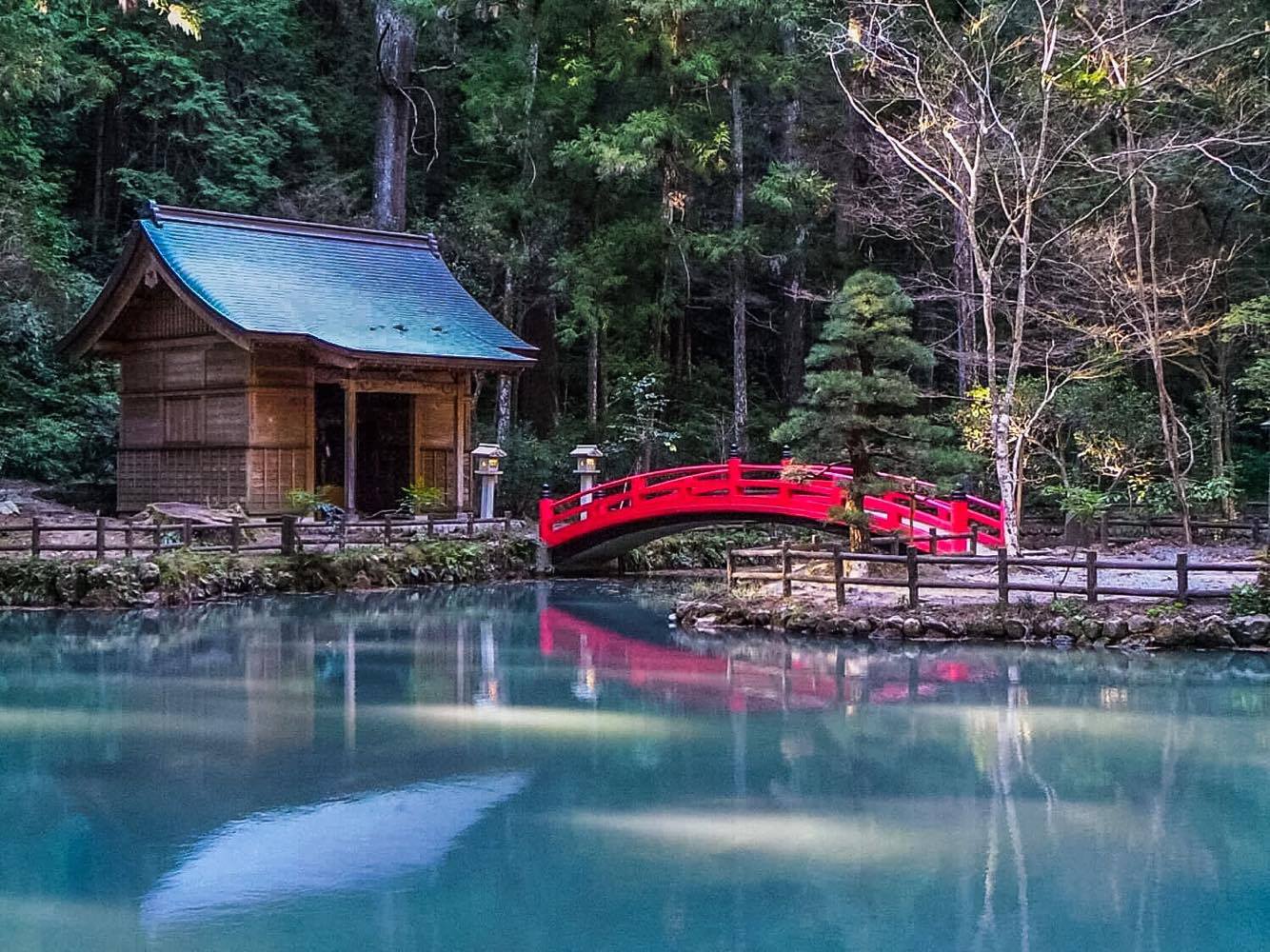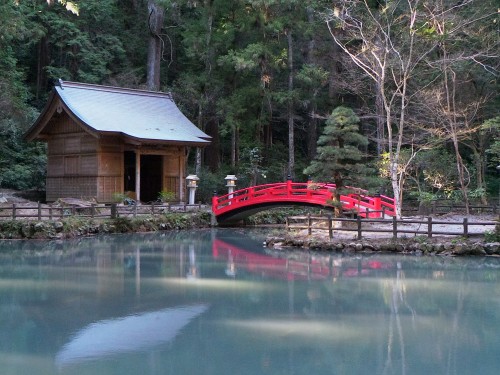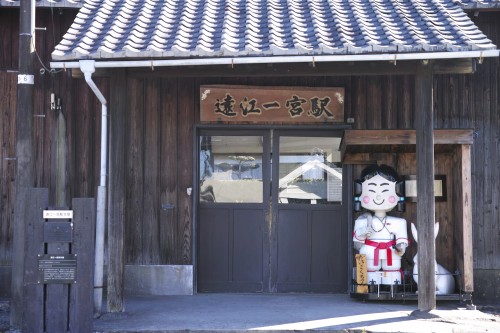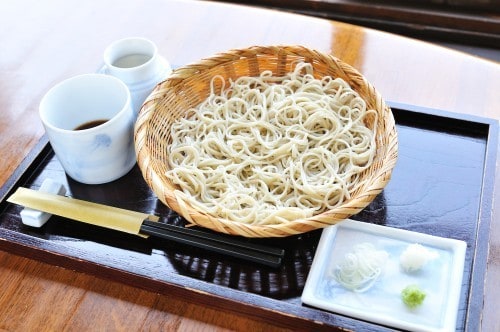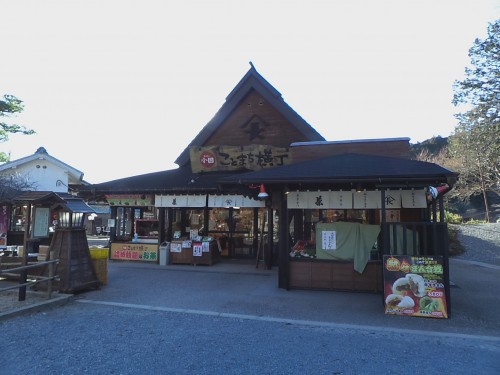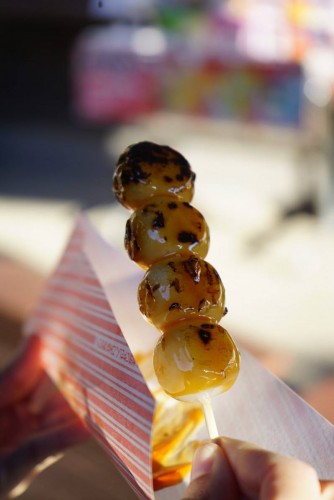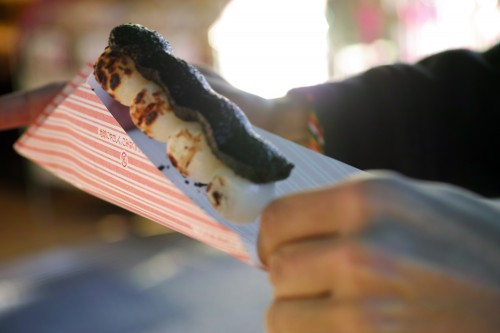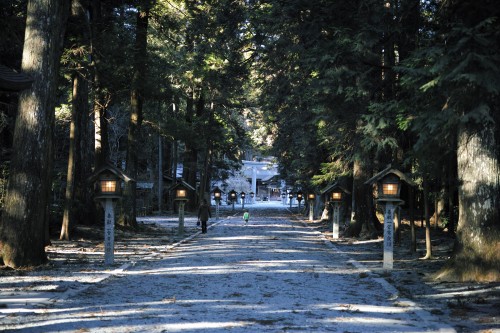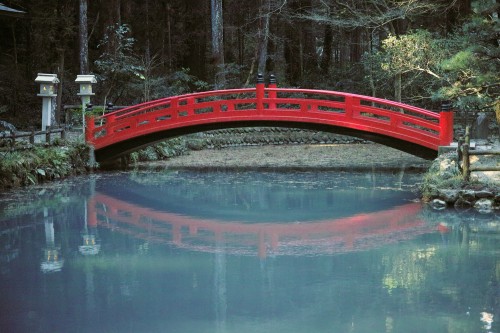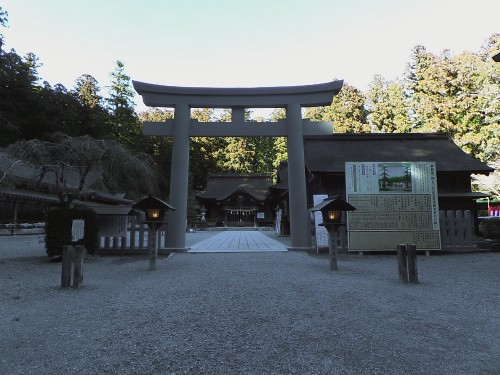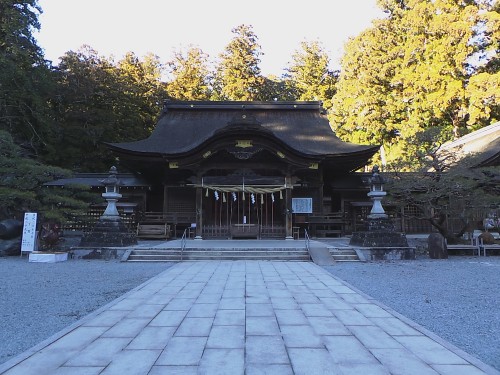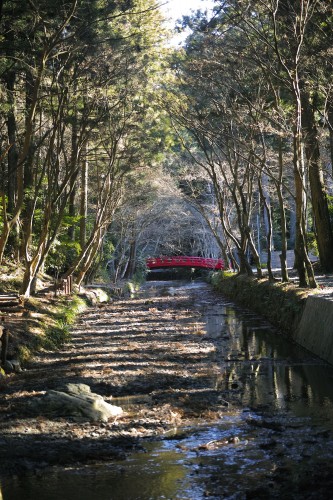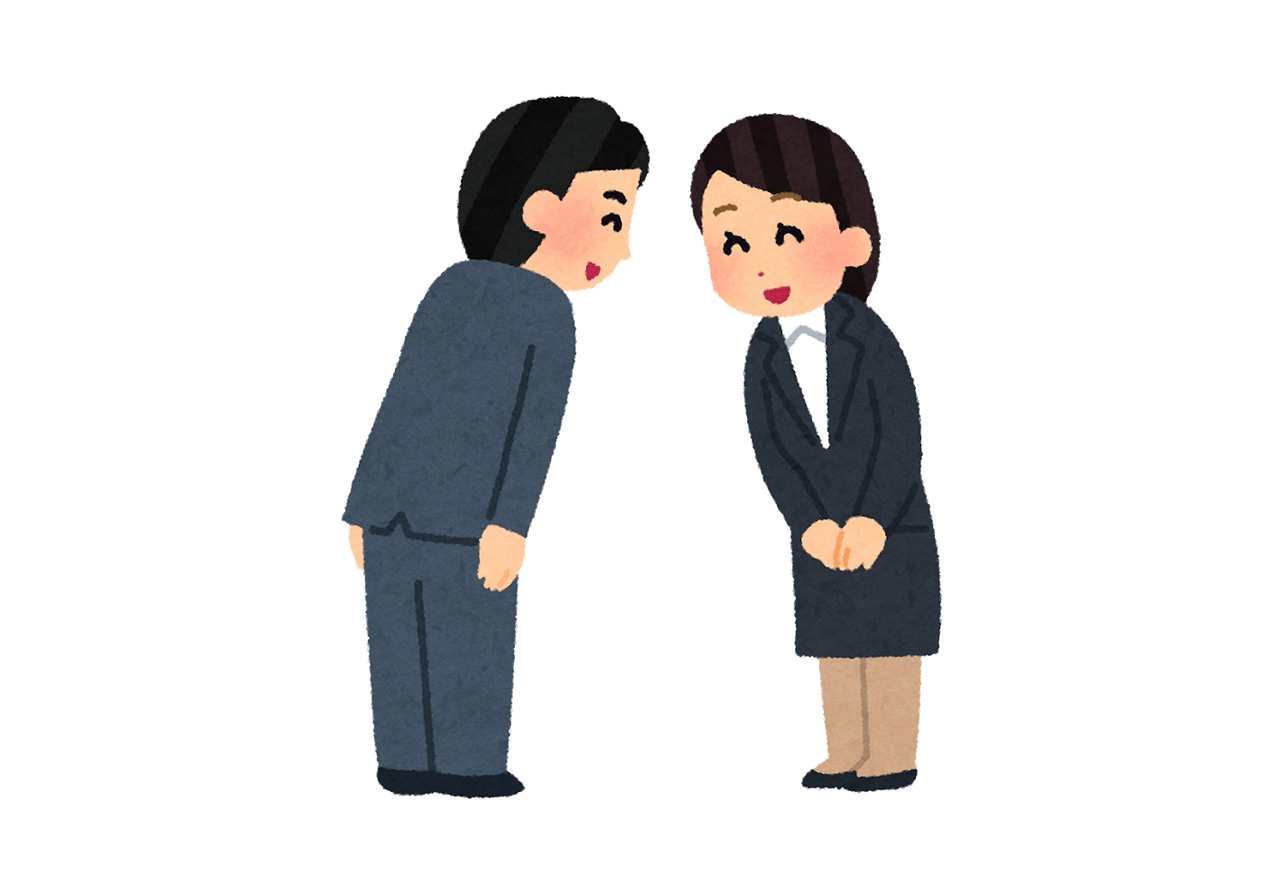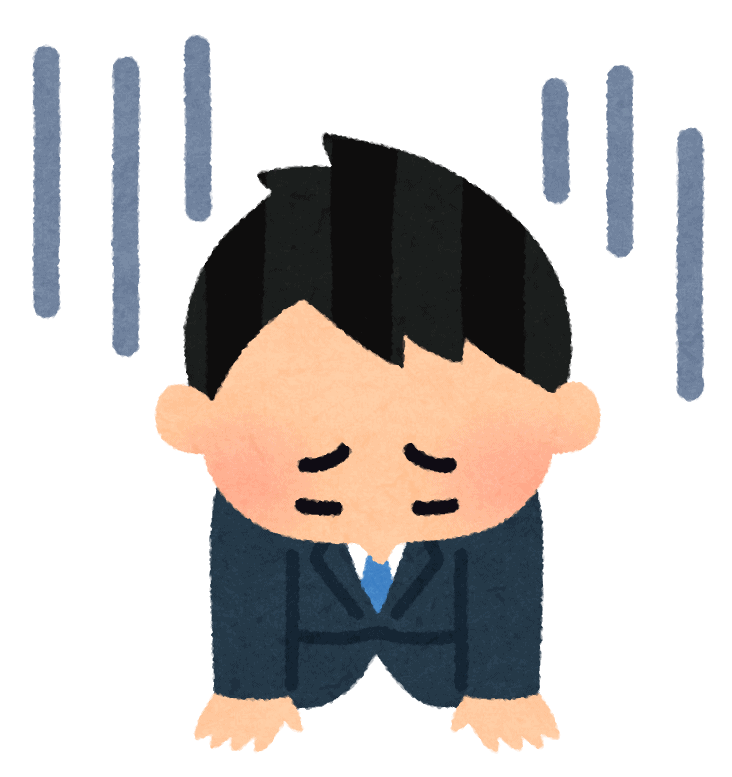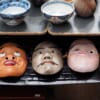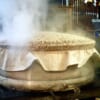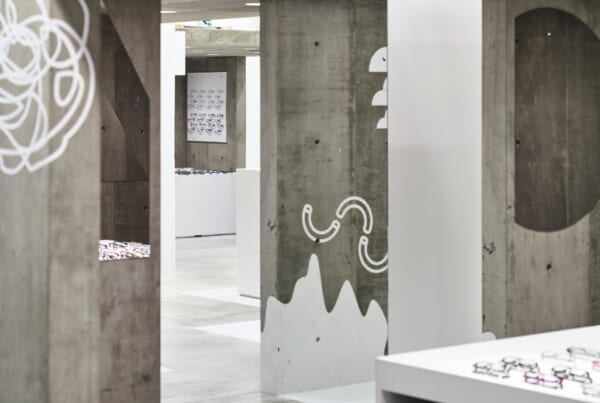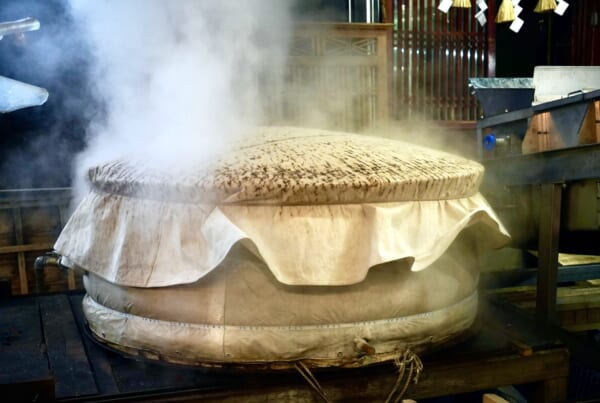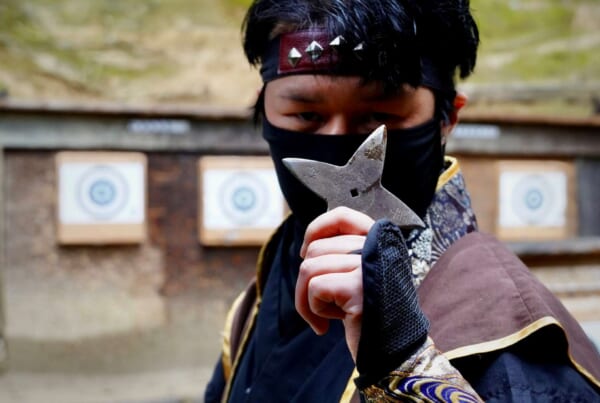Sponsored by Shizuoka Prefectural Tourism Association
While I was traveling in the western part of Shizuoka Prefecture (also known asTōtōmi-no-kuni 遠江国 or Enshū 遠州), I went to visit the Okuni Jinja (小国神社), one of the four main shinto shrines in Shizuoka Prefecture, known for its large path lined with lanterns and its red moon bridge.
As it was lunch time, I first looked for a good restaurant.
Lunch Break at Momoya
In Totomi Ichinomiya (遠江一宮), the nearest train station to Okuni Jinja Shrine, I discovered a very good soba (literally “buckwheat”) restaurant, ideal for a quick lunch break.
In Japan, soba noodles are eaten cold soaked in a sauce or hot in a broth.
At Momoya (百々や), the soba are homemade with local buckwheat flour! The large dish of soba noodles served with its soy sauce costs ¥1000. You can also drink good sake and try grilled miso.
- Opening hours: everyday except Tuesday from 11:30am to 3pm
- Address: Totomi-Ichinomiya station (the restaurant is located in the old station), 遠江一宮駅舎 2431-2 Ichimiya, 森町 Shuchi District, Shizuoka prefecture 437-0226
Dessert at Kotomachi Yokocho
After lunch, I went to the Okuni Jinja shrine (10 minutes away by car). This shrine is nicknamed the “small Kyoto of Enshū”. Before visiting the shrine, I stopped at Kotomachi Yokocho, a little market located outside the shrine, near the parking lot. I bought two Kushi dango, these delicious balls of sticky rice paste (mochi) grilled and presented on a skewer.
The mochi don’t have much taste, but I am fond of their soft texture and I could choose a dressing. I opted for a skewer of Mitarashi dango (the mochi are soaked in a soy sauce, sugar an starch syrup, a bit salty) and for a skewer of Goma dango (the mochi are covered with a sweet black sesame paste). Each one cost me ¥150.
Okuni Jinja Shrine
Oguni Jinja is imbued with mythology. Built in 555, it has survived through the ages to become a very popular place. Japanese tourists come from all over the country to pray for good luck and get married. Before reaching the buildings of the shrine, we crossed a very beautiful alley of cedars (the one lined with stone lanterns) leading from one torii to another.
On the way, a red moon bridge on a pond. The high arch and its reflection form a circle like a moon. So photogenic!
This large stone torii symbolizes the entry into the sacred area of the shrine.
Nestled in the hollow of the trees, the main building hosts many ceremonies.
To the right of the main alley, a secondary alley leads to a waterfall and a small shrine a little higher up the mountain. A second red moon bridge connects the two shores. Since I came in winter the river was somewhat dried up, but in summer the scenery must be beautiful!
How to Get There
If you are traveling by public transport, take a train on the “Tenhama / Tenryuu Hamanako Railway Line” (天浜線) and get off at “Totoumi Ichinomiya” (遠江一宮), the station where the soba restaurant is located. Then, you can either walk 50 minutes if you are sporty, take a taxi, or take one of the few “free micro bus” connecting the station to the shrine. (For the date, it is limited.)
By car it’s easier, take the Fukuroi exit(袋井IC)on the Tomei Express highway, then drive 20 minutes (10 minutes to Totomi Ichinomiya station + 10 minutes to the shrine), or take the Mori Kakegawa exit (森掛川IC) on the New Tomei Express highway, then drive 15 minutes.
SHIZUOKA GUIDE
Need more information? You can find up to date information about Shizuoka’s history, sightseeing locations, accommodations, food, and transportation by clicking on the link below:
https://shizuoka-guide.com/english/
[cft format=0]


